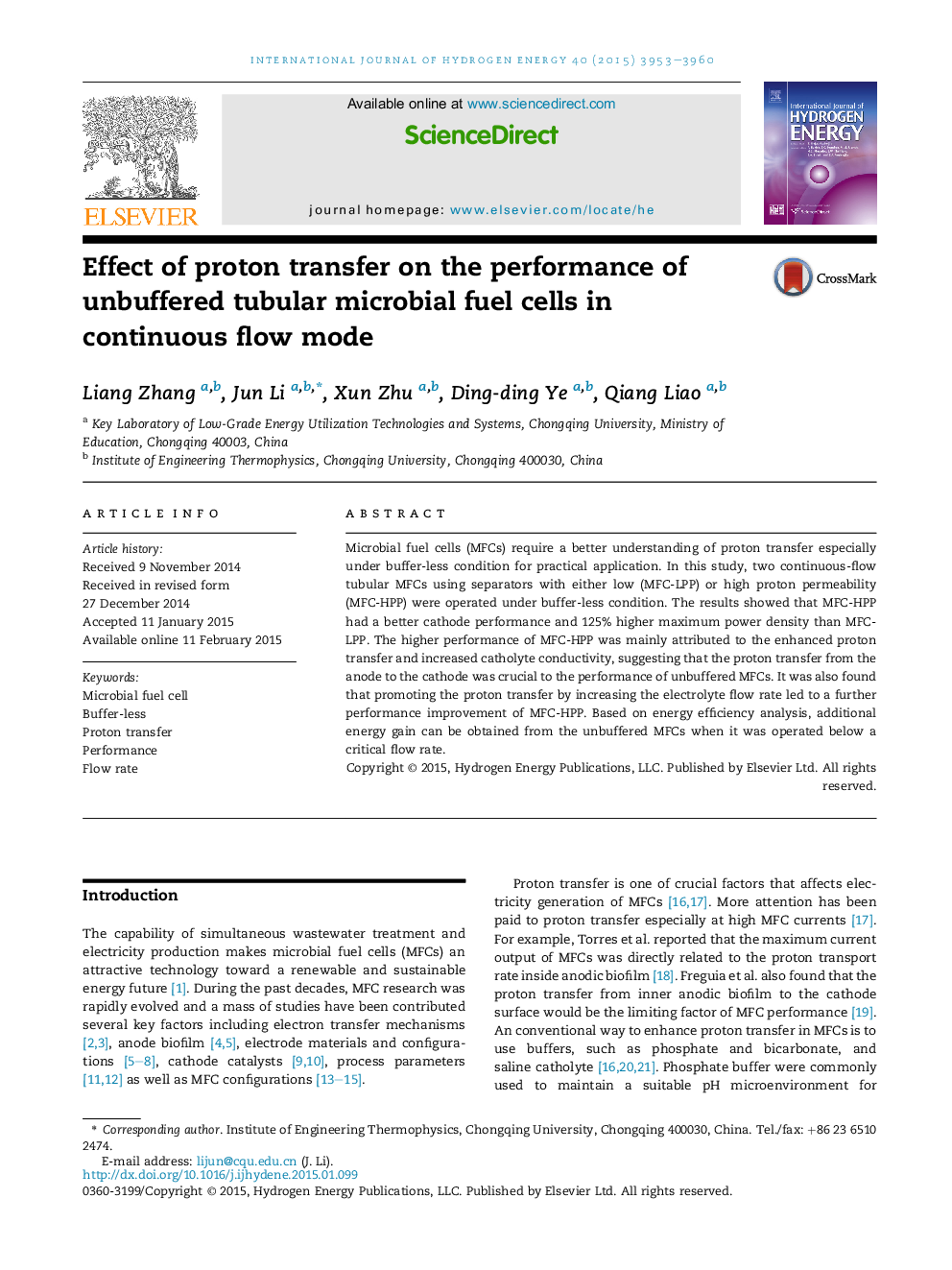| Article ID | Journal | Published Year | Pages | File Type |
|---|---|---|---|---|
| 1275822 | International Journal of Hydrogen Energy | 2015 | 8 Pages |
•Effect of proton transfer on unbuffered microbial fuel cells (MFCs) was investigated.•MFCs with low (MFC-LPP) or high H+ permeability (MFC-HPP) of separator were developed.•MFC-HPP had a much higher power than MFC-LPP mainly due to better proton transfer.•The increasing flow rate enhanced proton transfer and improved MFC-HPP performance.•Unbuffered MFCs could be operated in sequential anode–cathode flow for application.
Microbial fuel cells (MFCs) require a better understanding of proton transfer especially under buffer-less condition for practical application. In this study, two continuous-flow tubular MFCs using separators with either low (MFC-LPP) or high proton permeability (MFC-HPP) were operated under buffer-less condition. The results showed that MFC-HPP had a better cathode performance and 125% higher maximum power density than MFC-LPP. The higher performance of MFC-HPP was mainly attributed to the enhanced proton transfer and increased catholyte conductivity, suggesting that the proton transfer from the anode to the cathode was crucial to the performance of unbuffered MFCs. It was also found that promoting the proton transfer by increasing the electrolyte flow rate led to a further performance improvement of MFC-HPP. Based on energy efficiency analysis, additional energy gain can be obtained from the unbuffered MFCs when it was operated below a critical flow rate.
Graphical abstractFigure optionsDownload full-size imageDownload as PowerPoint slide
